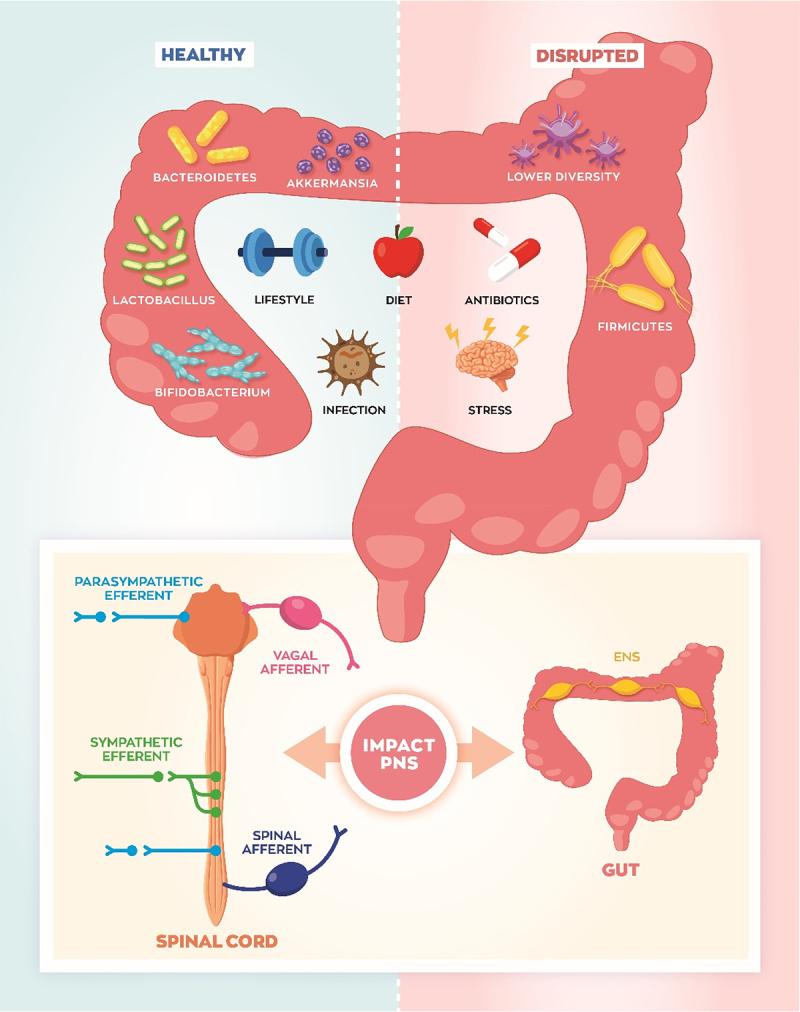Figure 1.

The gut microbiome composition is established at birth and is continually shaped by environmental factors such as lifestyle, diet, antibiotic use, infection, and stress. Generally, healthy individuals have a highly diverse microbiome, enriched in Bacteroidetes, Lactobacillus, Bifidobacterium, and Akkermansia. In chronic disease, microbiome diversity is often reduced and Firmicutes are expanded. The composition of gut microbes drastically impacts the peripheral nervous system (PNS) development and function. Vagal and spinal afferent (sensory) neurons relay microbial signals to the brain, and autonomic output is carried by sympathetic and parasympathetic efferent neurons. Enteric neurons form their own network in the gut, and they are ideally positioned to detect gut microbe signaling and reflexively alter gastrointestinal functions. The afferent, efferent, and enteric nervous systems are interconnected to respond to gut microbe signaling and cooperatively control a variety of homeostatic functions such as digestion, immunity, and visceral perception.
